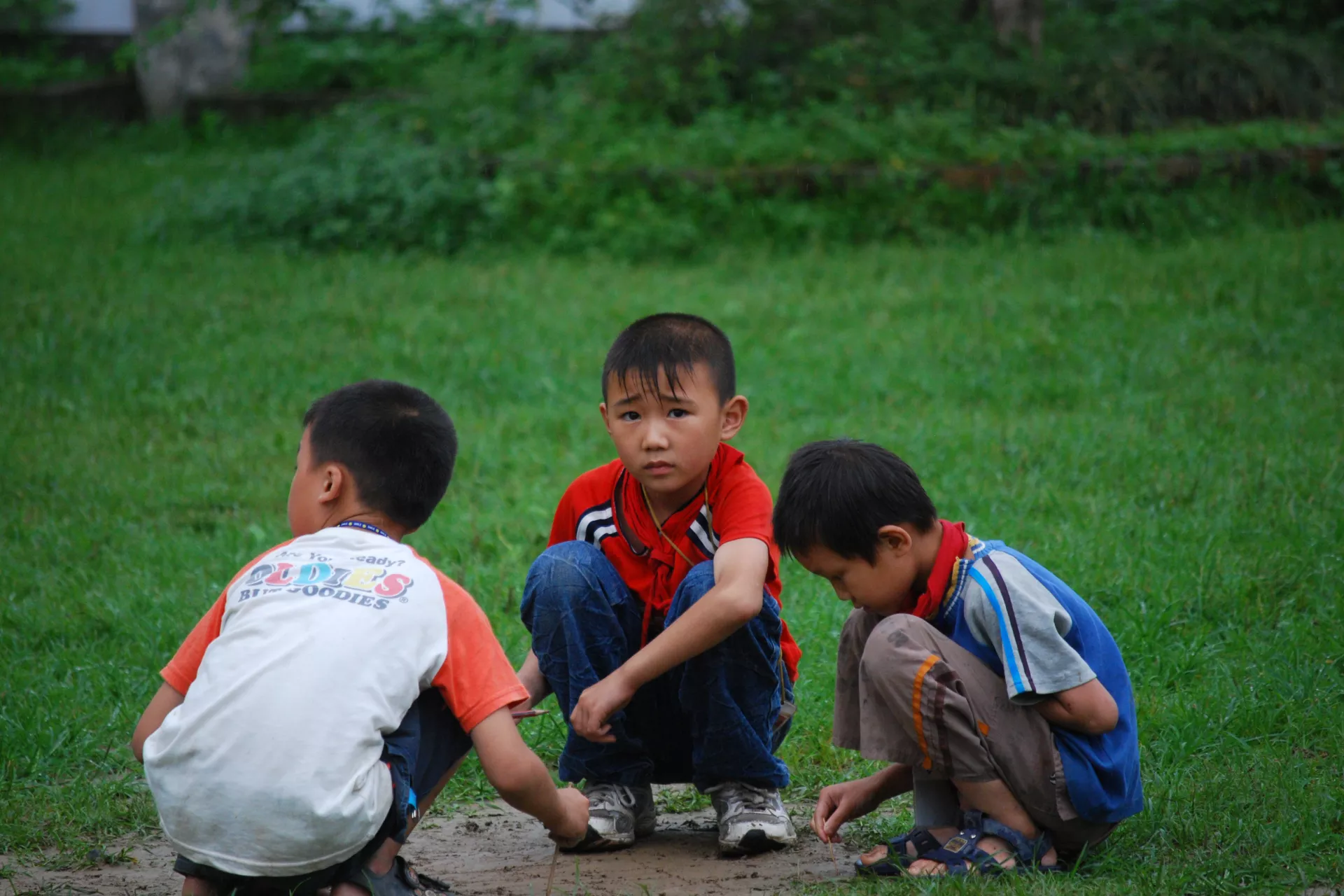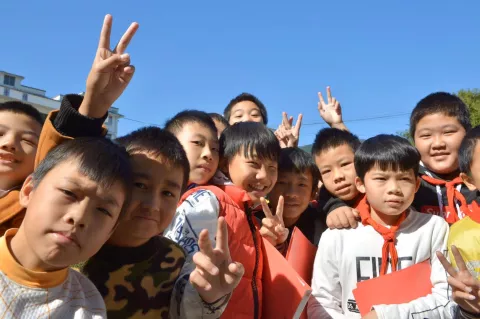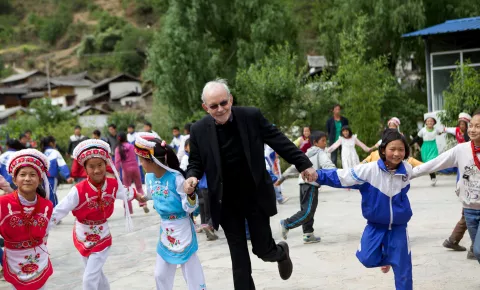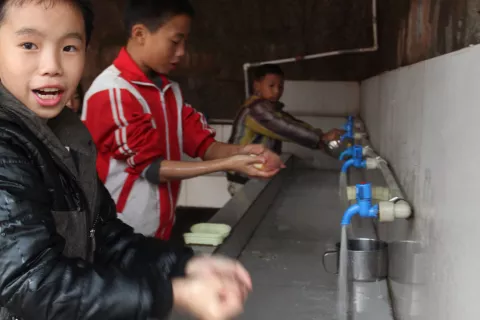Child Friendly Schools reach out to 'left-behind' children
Child Friendly Schools reach out to 'left-behind' children

- Available in:
- 中文
- English
Sanjiang County, Guangxi Province, June 2009 – Last summer, eight-year-old Huang Huijie received a surprise gift from his teacher: a long-distance phone call with his mother for the first time in more than five years.
Ever since his parents divorced and separately left home five years ago to find work in the cities, Huijie has rarely seen or heard from them. The boy lives with his aged grandparents and his cousins, who were also left behind in the village.
"I once wrote a poem to teacher Zheng as a gift because she always showed me so much care and love. A while later, she asked me to come to her office, saying she had a gift in return. She had put my mother on the phone." he remembered.
That day, the boy was so overwhelmed from hearing his mother's voice that he broke into tears. "We only talked for a few minutes. I said repeatedly to her, 'Come back to see me, I've been doing well in school and am now at the top of the class,'" he said.
Huang Huijie is a second-grader in Danzhou Primary School, one of the 50 UNICEF-supported Child Friendly Schools in Sanjiang County, Guangxi Province.
With limited farmland and natural resources, Sanjiang County relies heavily on labour export to the cities. With an average annual income of about RMB 2,800 per capita, the County, populated by several ethnic minority groups, is also one of the poorest areas in China. The migration of mothers and fathers to urban centres has brought in money to the villages, but also left a vacuum in the lives of some 17,000 children left behind at home.
Filling an Emotional Vacuum
Since 2001, UNICEF has worked with the Guangxi Provincial Department of Education and local counterparts to introduce Child Friendly approaches in primary schools. This is to ensure all children, regardless of background, gender, or family situation, can enjoy a safe, emotionally secure and child-centred environment to achieve their full potential.
Huang Huijie and his peers now find comfort and emotional support in the "Home for Left-behind Children" at their school, a room where dozens of children learn life skills and attend group activities.
"Many left-behind children have to take care of themselves and even younger kids as their grandparents are too old. Also, the grandparents think it is fine to just give the children enough food and clothes, but ignore their psychological needs," Teacher Jiang noted.
"To fill the gap, we organize sports activities and life-skills training through games for them to have fun with one another and gain hands-on experience on how to maintain personal hygiene." Jiang said.
Additionally, the school has a support group for children to share their thoughts and feelings about their separation from their parents.
"I understand they work hard to support my study and living expenses, but I wish they could come back to see me more often," Yang Hongling, aged 9 said. "I feel so alone when I hear my classmates talk about everything going on in their families, especially when they mention their parents with such smiles. I stay in a corner and sometimes cry to myself."
"Since attending the activities through the Child Friendly School, I've made so many friends. They ask me to join them whenever they have something fun to play." She smiled. "I feel less lonely now."
Aiming Higher
In addition to emotional support, the Child Friendly Schools are also helping the left-behind children to do better in their studies.
"The school gate is open to all students and we don't require any entrance examination," Cao Xinyou, principal of Guyi Township No. 2 Primary School said. In 2009, the student enrollment has increased to 316 from 148 in 2007. Among them, 202 students are from migrant worker families.
"A number of these students have difficulty in their studies because they don't receive enough academic help from their grandparents, who received little education," Principal Cao said. "Also, these students frequently have to transfer from one school to another as they live with different relatives."
"Since 2008, as a trial project, we've identified 22 children affected by migration. Each is helped by a teacher to catch up with his or her studies and a file is kept to track the changes of each individual until 2011. We have noticed significant improvement in their performance," Cao noted.
Now one of the best students in his class, Huang Huijie hopes that one day when his mother comes back to see him, she will be so impressed by his accomplishments and hard work that she will take him with her to the city. "My dream is to become a football player," he said. "I also dream that my mother and I can live together forever."
Note: The names of the children have been changed to protect their identity.





